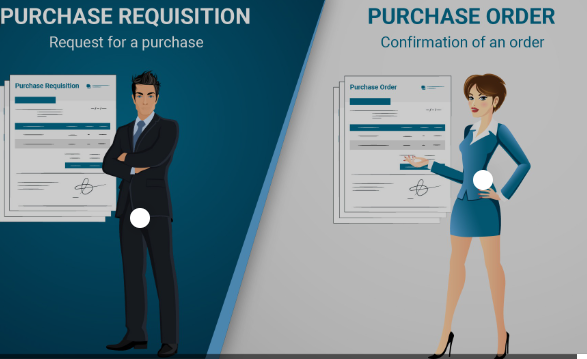Should Special Education Teachers receive Additional Payments?

Special education teachers are often underpaid and face many challenges in their work, including shortages of qualified teachers and high turnover rates. As a result, some lawmakers have called for the introduction of additional payments for special education teachers. In this article, we’ll explore the pros and cons of these payments, and discuss whether or not they should be made.
Background
Special education teachers are often underpaid relative to their peers in other educational fields. A recent report from the National Education Association (NEA) found that the average special education teacher salary is only 73 percent of the average salary for all teachers. Additionally, special education teachers often work longer hours than general education teachers and may have more experience in the field.
Proponents of increased pay for special education teachers argue that they are uniquely qualified to teach students with disabilities and that their skills and experience are worth more than the current salary level. Opponents of increased pay say that it would be impractical and expensive to increase salaries dramatically for a small number of educators and that many schools would be unable to afford the increased costs.
Should special education teachers receive additional payments? The answer is complicated, but there is a consensus among those who study the issue that special education teachers are underpaid and deserve higher salaries.
Arguments for and Against Additional Payment for Special Education Teachers
There are arguments for and against the proposal to provide special education teachers with additional payments. Those in favor of the payment argue that it would help to improve teacher quality and recruitment, while those against it contend that it would simply increase the costs of government and burden taxpayers.
Those in favor of the payment argue that it would help to improve teacher quality and recruitment. This is because, according to proponents of the proposal, special education teachers are often among the most highly qualified members of the teaching profession. They typically have a bachelor’s degree in education or another related field, as well as certification from a professional organization such as the National Board for Special Education.
Those against the proposal contend that it would simply increase the costs of government and burden taxpayers. They argue that providing additional payments to special education teachers would not improve teacher quality since there are already ample opportunities for teachers who work in this area to receive additional compensation. Moreover, providing additional payments would divert resources away from other areas of need within the school system, such as teachers who teach English-language learners or students with disabilities who require more intensive instruction.
Background
Special education teachers are often the first people to reach students who are struggling academically. They work hard to help these students succeed and deserve to be compensated for their efforts.
Currently, special education teachers receive a lower salary than other teachers. This is despite the fact that they often have more experience and are more qualified. Some researchers believe that this discrepancy is due to disparities in education levels and skills required for special education teaching.
There are a number of ways to address this problem. One option would be to increase the salary of special education teachers. Another would be to provide additional training and support for these teachers. Either way, it is important that these educators are properly compensated for their hard work.
Arguments for Additional Payments
There are a number of arguments in favor of awarding special education teachers additional payments.
First, paying special education teachers more would help to ensure that they have the resources they need to provide the best possible educational experiences for their students. In addition, paying special education teachers more would help to create a better pool of talent available to work in the field, and would incentivize educators to enter the field of special education. Finally, awarding special education teachers additional payments would help to ensure that all students who need additional assistance receive the support they need.
Arguments Against Additional Payments
Arguments Against Additional Payments for Special Education Teachers
1. Additional payments will not be effective in improving the teaching and learning of students with special needs.
2. School districts will have to find additional funds to make additional payments to special education teachers, which could lead to cuts in other areas of education.
3. Teacher workloads will increase as a result of making additional payments, which could lead to decreased quality of teaching for students with special needs.
4. Special education teachers are already highly compensated and will receive an increased salary as a result of receiving additional payments. This would only further increase their income level and could lead to a decrease in teacher morale and motivation.
5. Making additional payments will not improve the socioeconomic status of special education teachers, who are predominantly working-class individuals.
6. The implementation of additional payments would be administratively burdensome and costly for school districts, which would require significant resources to be allocated to this effort.
Arguments for and against special education teachers receiving additional payments
Since special education teachers work with students who have disabilities, they deserve extra compensation. Special education teachers often work longer hours and face more challenges than regular teachers. They need the extra money to help them meet the demands of their jobs.
Arguments against special education teachers receiving additional payments. Many people argue that special education teachers do not deserve extra pay because they are not working like regular teachers. They argue that special education teachers should be paid the same as other teachers since they are also required to undergo the same training and certification.
What is Special Education?
Special education is a term used to describe teaching and services that are specifically designed for students who have difficulty learning in traditional classes. These students may have special needs, such as a disorder or disability, or they may just be struggling with certain subjects.
Most special education teachers work full-time and receive regular salaries. However, some schools offer additional payments to teachers who work in special education. These payments can help cover the cost of extra training and resources needed to work with these students.
Overall, special education teachers provide important services that are needed by many students. While the payment options vary from school to school, all of them should offer additional compensation to those who work in this field.
What are the Benefits of Special Education?
There are many benefits to special education teachers, including increased pay and better working conditions.
One of the main benefits of special education is that it provides a separate, specialized learning environment for students with disabilities. This allows these students to receive the same level of attention and care as their peers who do not have disabilities.
Additionally, special education teachers often receive higher salaries than other teachers. This is because special education requires more time and dedication than traditional classroom instruction. In some cases, special educators may even be required to work in separate schools or departments from other teachers. For these reasons, special education teachers often fare better than their counterparts when it comes to salary and working conditions.
Should Special Education Teachers Receive Additional Payments?
There is no easy answer when it comes to whether or not special education teachers should receive additional payments.
Some people argue that the extra work required to provide specialized instruction justifies an increase in pay. Others feel that the current level of compensation is already more than adequate and that teachers should not be rewarded for extra effort.
Ultimately, the decision as to whether or not special education teachers should receive additional payments will likely be up to individual school districts. However, there are a number of factors to consider before making this decision.
What is special education?
A special education teacher is a teacher who is trained to work with students who have disabilities. Special education teachers work with students in a variety of settings, such as in schools, at home, or in the community. In some cases, special education teachers may also work with children who have other special needs not related to disabilities.
Special education teachers are typically paid less than other teachers in the school system. This is because their job requires them to spend more time working with individual students. They also often work longer hours than other teachers. In addition, many states don’t provide special education teachers with benefits that other teachers receive, such as paid vacation and sick days.
Some people argue that special education teachers do not need additional payments since their jobs already require them to spend a lot of time working with individual students. Others argue that special education teachers deserve more financial compensation since their jobs are difficult and require a lot of specialized training.
What are the benefits of special education?
There are a lot of benefits to special education, but here are just a few:
- -Special education teachers help students who have disabilities reach their full potential
- They provide students with the support they need to learn and be successful.
- -It can help reduce student isolation and increase socialization.
- -It can improve communication and collaboration between students and teachers.
- -It can help reduce the number of dropouts from school.
- -It can improve academic performance.
- -It can help reduce bullying and violence in schools.
Should special education teachers receive additional payments?
Special education teachers should receive additional payments to help offset the extra time and effort required to provide a special education program. These teachers often spend more time than other teachers working with students who have disabilities, and they deserve fair payment for their efforts.
Pros and Cons
Special education teachers are highly qualified professionals who work extremely hard to provide a quality education for students with disabilities. However, many argue that they should not receive additional payments, as this could financially burden schools and ultimately negatively impact student achievement.
On the one hand, special education teachers are often required to maintain extensive knowledge about different disability types and accommodations. This often requires them to stay current on new research and developments in their field, which can be difficult to do without additional compensation. Additionally, special education teachers often work long hours, which can lead to stress and fatigue. Providing them with a financial incentive could help them manage their workload more effectively.
On the other hand, some argue that special education teachers already receive a significant amount of compensation. In most cases, they are paid more than general educators, and their salaries can be quite high. Additionally, many states have specific funding mechanisms dedicated specifically to special education teachers. Providing them with an additional payment would likely siphon away valuable resources from these initiatives.
Ultimately, it is critical that any decisions made about pay for special education teachers take into account the unique circumstances of each school district.
Conclusion
Special education teachers are an invaluable part of the educational system and deserve special attention when it comes to salary and benefits. While each school district is different, there should be a minimum standard that all special education teachers receive, such as additional payments for hours worked outside the norm or extra days off.
If you’re a special education teacher looking for ways to improve your salary and benefits, keep these issues in mind and speak with your union representative to see what can be done on your behalf.






